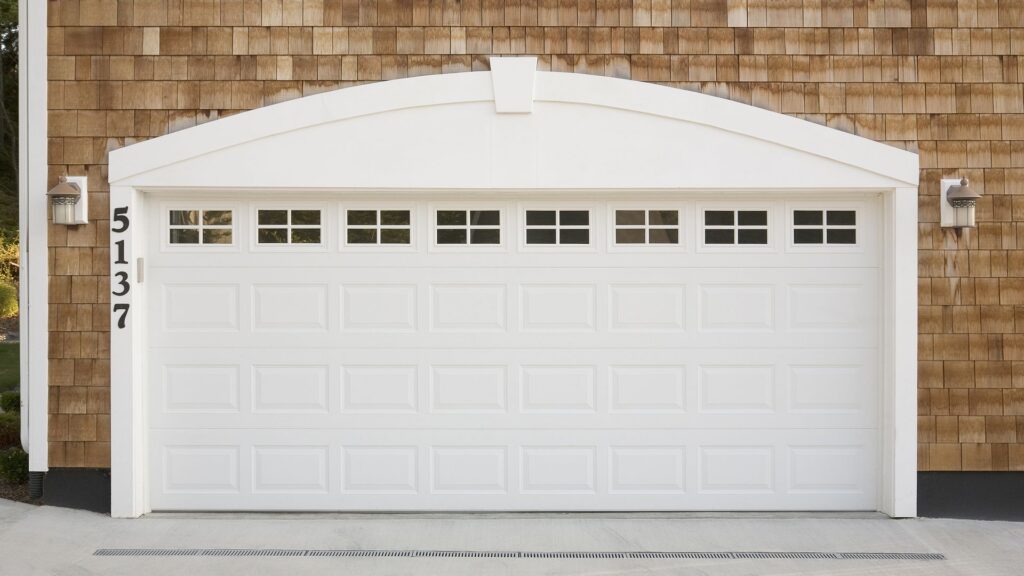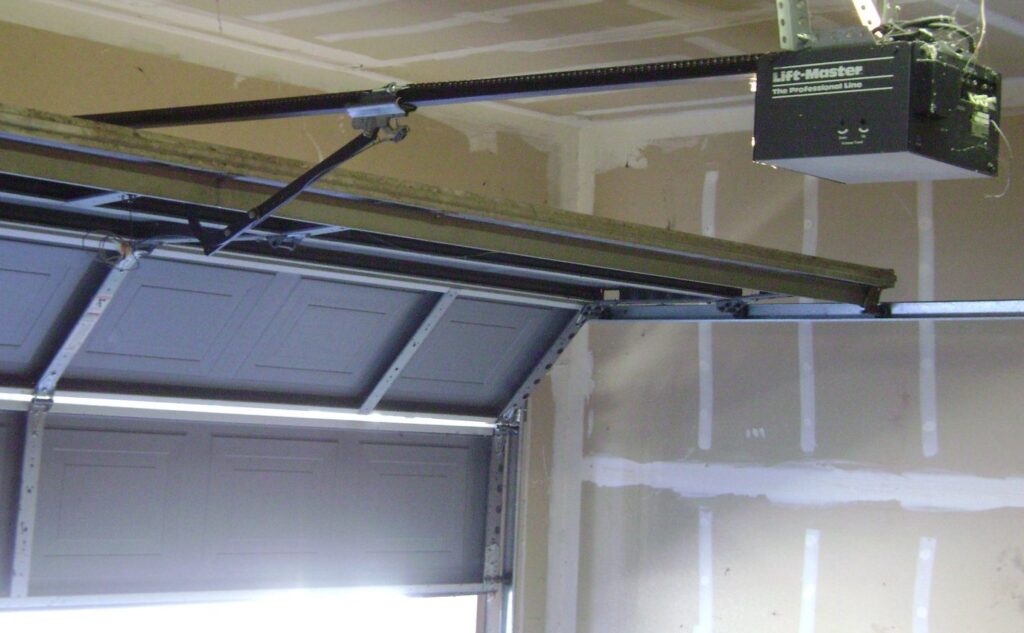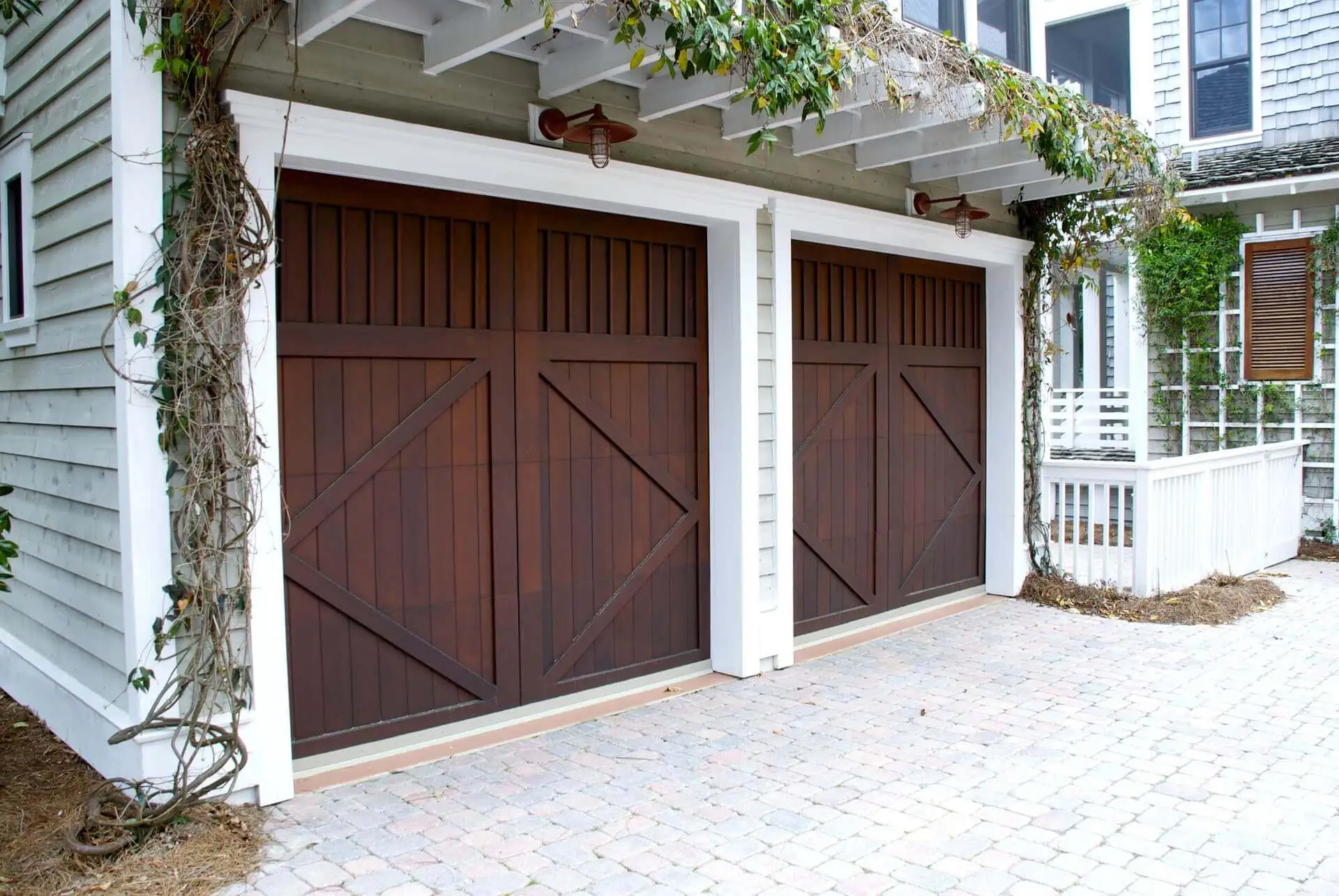Causes and Solutions
Introduction
A garage door is an essential feature of many homes, providing security and convenience for your vehicles and belongings. However, a noisy garage door can be an annoying distraction and a cause for concern. Unusual sounds emanating from your garage door can indicate underlying issues that need attention. Addressing these noises promptly not only enhances your home’s comfort but can also prevent costly repairs in the future. This article explores the common causes of noisy garage doors and offers practical solutions to help you maintain a quiet and smoothly operating door.

Common Causes of Noisy Garage Doors
- Lack of Lubrication
One of the most frequent causes of noise in garage doors is insufficient lubrication. Garage door components such as hinges, rollers, and tracks need regular lubrication to function smoothly. Over time, dirt and debris can accumulate, leading to friction between parts. When the door is opened or closed, this friction produces squeaking or grinding sounds. Regularly lubricating these parts can reduce noise significantly.
- Worn or Damaged Rollers
Rollers are crucial for the smooth operation of a garage door. They glide along the tracks and support the door’s weight. Over time, rollers can wear out or become damaged, leading to noise during operation. Worn rollers may rattle or create a grinding sound as they move. Inspecting the rollers for signs of wear and replacing them if necessary can resolve this issue.
- Loose Hardware
Loose nuts, bolts, and screws can lead to rattling or banging noises when the garage door operates. The vibrations from the door’s movement can cause these fasteners to loosen over time. Regularly checking and tightening all hardware can eliminate unwanted noise and ensure that the door functions correctly.
- Misaligned Tracks
The garage door operates on a set of tracks that guide its movement. If these tracks become misaligned, the door may not move smoothly, resulting in noise. Misalignment can occur due to impacts, wear, or installation issues. Inspecting the tracks for alignment and adjusting them as needed can help resolve the noise issue.
- Spring Problems
Garage doors are equipped with springs that counterbalance the weight of the door, making it easier to open and close. If the springs are worn, damaged, or improperly adjusted, they can create noise during operation. A loud popping or squeaking sound may indicate spring issues. It’s essential to address spring problems promptly, as they can affect the door’s functionality and pose safety risks.
- Weather Stripping Issues
Weather stripping serves as a seal between the garage door and the frame, preventing drafts and water intrusion. Over time, weather stripping can become worn or damaged, causing it to flap or rattle during operation. This can create noise as the door moves up and down. Replacing worn weather stripping can help reduce noise and improve energy efficiency.
- Old or Incompatible Garage Door Opener
If your garage door opener is outdated or not compatible with your door system, it may struggle to operate smoothly. This can lead to a variety of noises, including grinding or straining sounds. Upgrading to a modern garage door opener with improved technology can significantly reduce noise and enhance the door’s performance.
- Debris in the Tracks
Accumulated dirt, leaves, or other debris in the tracks can hinder the garage door’s movement and cause noise. When the rollers encounter obstructions, they can create grinding or scraping sounds. Regularly cleaning the tracks and ensuring they are free of debris is essential for smooth operation.
- Improper Door Balance
A garage door that is not properly balanced can create noise during operation. If the door is heavy on one side, it may strain the opener and produce banging or grinding sounds. A professional inspection can determine if the door is balanced correctly and make necessary adjustments.
Solutions for Fixing a Noisy Garage Door
Regular Lubrication
To prevent noise caused by friction, it’s essential to lubricate the garage door regularly. Use a silicone-based lubricant for the rollers, hinges, and tracks. Apply lubricant every few months or more frequently if you notice increased noise. Be sure to wipe off any excess lubricant to avoid attracting dirt.
Replace Worn Rollers
If the rollers show signs of wear or damage, it’s best to replace them. Look for high-quality nylon or steel rollers that can withstand the weight of your garage door. Replacing the rollers will not only reduce noise but also improve the overall performance of the door.
Tighten Loose Hardware
Make it a habit to inspect the garage door’s hardware periodically. Check all nuts, bolts, and screws for tightness. Use a wrench or socket set to tighten any loose fasteners, ensuring that the door operates smoothly and quietly.
Align the Tracks
If you suspect that the tracks are misaligned, visually inspect them for any bends or gaps. Gently tap the tracks back into alignment using a rubber mallet, being careful not to damage them. Ensure that the tracks are level and parallel to each other. If you’re unsure about this process, consider hiring a professional.
Inspect and Repair Springs
If you hear loud noises coming from the springs, it’s essential to inspect them immediately. Check for any visible damage, such as gaps or excessive rust. If you suspect a problem, it’s best to call a professional garage door technician, as handling springs can be dangerous.
Replace Weather Stripping
If you notice that the weather stripping is damaged, replace it to reduce noise and improve energy efficiency. Weather stripping can be easily found at hardware stores and can be cut to fit your garage door. Make sure to install it correctly to create a proper seal.
Upgrade the Garage Door Opener
If your garage door opener is outdated, consider upgrading to a newer model. Look for quiet models with features like belt drives, which operate more quietly than chain drives. A modern opener can reduce noise significantly and improve the overall functionality of your garage door.
Clean the Tracks
Regularly cleaning the tracks will help prevent noise caused by debris. Use a damp cloth to wipe down the tracks and remove any dirt, dust, or leaves. Avoid using lubricant in the tracks, as it can attract dirt and create more problems.
Check Door Balance
To check if your garage door is balanced, disconnect the opener and manually lift the door. It should stay in place at any height without dropping or rising. If it doesn’t, the door may need to be adjusted. Contact a professional to assess and correct any balance issues.

Conclusion
A noisy garage door can be a source of frustration and concern, but understanding its causes and potential solutions can help you maintain a peaceful home environment. Regular maintenance, including lubrication, inspection of components, and prompt repairs, can go a long way in keeping your garage door functioning smoothly and quietly. By addressing noise issues early on, you can prevent more significant problems in the future, ensuring the longevity and efficiency of your garage door system. Whether you choose to tackle these issues yourself or enlist the help of a professional, taking action to fix a noisy garage door will enhance your home’s comfort and security.


